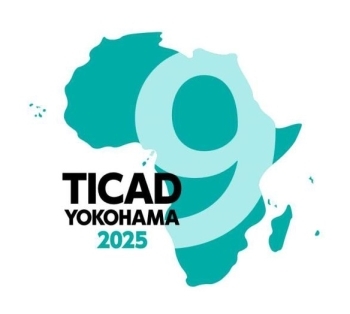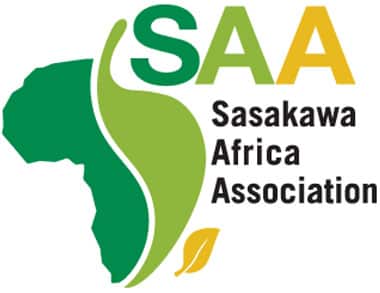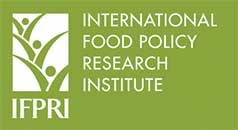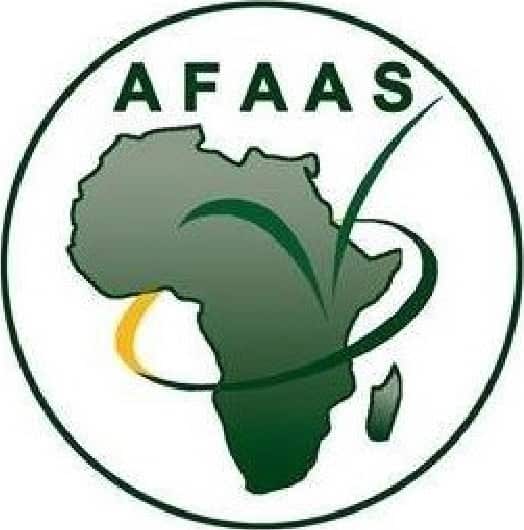Tokyo International Conference for African Development (TICAD9) Official Side Event Webinar Scaling Agricultural Extension in Africa amid Emerging Technologies and Global Aid Shifts
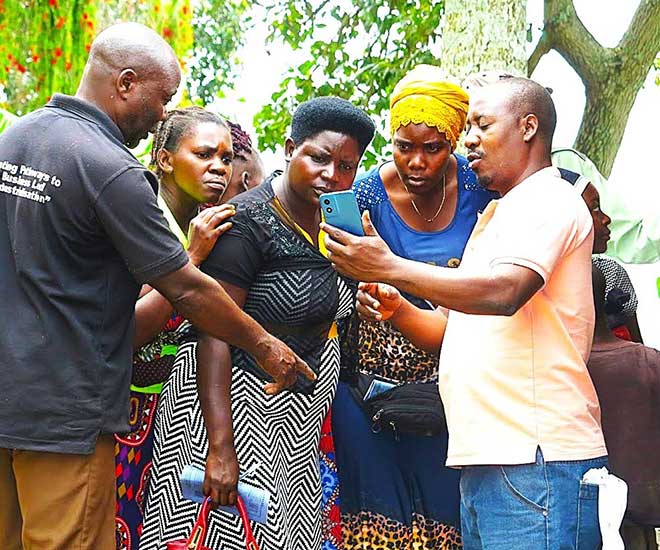
Organized by
In collaboration with
Date and Time
| Registration Deadline | : | Thursday, July 24th by 16:00 (Japan time) |
|---|---|---|
| Registration Fee | : | Free |
| Language | : | English (Japanese-English simultaneous interpretation available) |
| Venue | : | Online (Zoom Webinar) |
Background
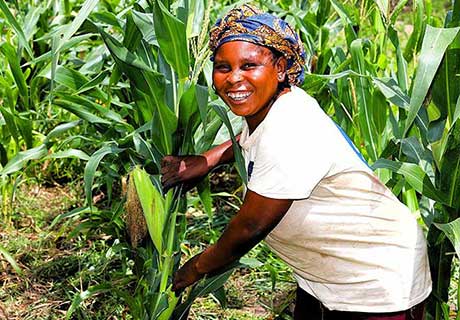
In recent years, agricultural extension services have gained renewed importance in Africa. This resurgence is driven not only by concerns over declining agricultural productivity—linked to climate change, limited market access, and rising agro-input costs—but also by the need to create formal and informal employment opportunities, particularly for youth and women. When well-implemented, extension services serve as a critical enabler of farm productivity, value chain integration, and income generation across the agricultural sector.
However, traditional extension models often fall short of addressing the complex, interconnected challenges that smallholder farmers face today. They typically emphasize one-way knowledge transfer, neglecting the broader ecosystem that shapes farmer livelihoods—including market dynamics, financial access, and social empowerment.
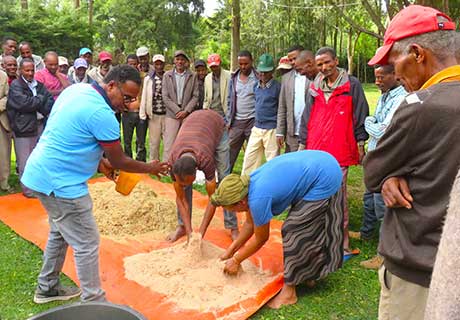
A Demographic Imperative Africa’s population is rapidly growing, with over 60% under the age of 25—the youngest population in the world. By 2050, this youth cohort is projected to double. At the same time, unemployment—especially among youth—remains alarmingly high, underscoring the urgent need to build inclusive and sustainable agricultural systems that can absorb and empower this demographic. Women, too, continue to face barriers to participation in agriculture, including limited access to land, finance, inputs, and extension services. Ensuring that youth and women are at the center of extension strategies is critical for driving both equity and growth.The concept of Multidimensional Agricultural Extension offers a forward-thinking alternative. It encompasses innovative models that go beyond traditional knowledge dissemination to integrate: Market access and agribusiness development, Financial services and inclusion, Climate-smart and regenerative practices, Digital tools and emerging technologies, and Empowerment and leadership of women and youth. This side event will explore such models—grounded in field-level practice—across diverse socio-economic and agro-ecological contexts in Africa.
Emerging technologies such as artificial intelligence (AI), mobile platforms, and other digital innovations are poised to transform the reach and efficiency of extension services. Though still in early stages in many rural African settings, these tools can support: Personalized advisory services, Real-time data collection and decision-making, Wider dissemination of agricultural knowledge, and Improved feedback loops between farmers and service providers. When combined with human-centered approaches, digital tools can strengthen extension outcomes without replacing the relational role of local facilitators.
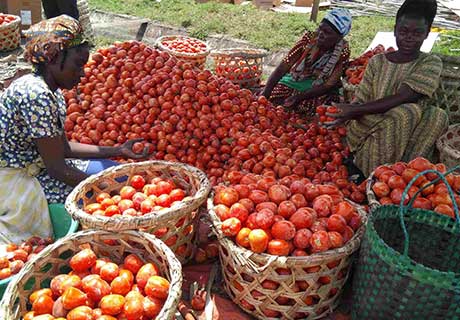
The global development assistance landscape is evolving, with notable institutional shifts such as the realignment of donor priorities and restructuring of agencies like USAID. These changes reflect a move toward locally-led, innovation-driven development models that are less reliant on traditional external aid. This moment presents an opportunity—and a necessity—to build resilient extension systems, grounded in strong local leadership, diverse partnerships, and sustainable financing models.
Across Africa, practical examples illustrate how multidimensional extension models can enhance both productivity and employment. One such model is the use of Commercial Community-Based Facilitators (CCBFs)—local actors who serve as agro-dealers, trainers, and knowledge hubs within their communities. These facilitators improve farmers’ access to inputs, offer training on safe agrochemical use, and promote productivity-enhancing technologies. While not intended to replace public extension systems, CCBFs are often: More cost-effective, using local resources, Better tailored to community needs, and scalable and sustainable, due to strong local ownership. They represent a complementary mechanism that can extend the reach and relevance of public services—especially in remote or underserved regions. Their work can be further enhanced through AI and digital decision-support tools.
This event aims to catalyze dialogue on transforming agricultural extension in Africa through models that are: Innovative and multidimensional, Inclusive of youth, women, and marginalized groups, and Responsive to current development realities—including shifts in technology and aid structures. Participants will explore how agricultural advisory systems can evolve to not only improve productivity but also generate decent employment, drive climate resilience, and ensure food system sustainability.
Program
| Session | Speakers |
|---|---|
| Welcome and Introductions | Dr. Amit Roy |
Keynote Address |
Dr. Canisius Kanagire |
Special Report |
Dr. Eliot Jones-Garcia |
Status and Future of Extension in Africa |
Dr. Kristin Davis |
| Multidimensional extension: experience and lessons | |
| i: “Strengthening Agricultural Extension in Africa through continental initiative and local innovation” | Dr. Rosemirta Birungi |
| ii: “A success story of a pluralistic agricultural extension model: the Commercial Community-Based Facilitators models from Uganda” | Mr. Robert Anyang |
| iii: “The Impact of digital agricultural technologies and innovation and the Public-Private Partnership (PPP) on empowering smallholder farmers.” | Dr. Tawanda Mthintwa Hove |
| Panel discussion | Moderator: Dr. Mel Oluoch |
| Q&A | Moderator: Dr. Mel Oluoch |
| Concluding remark- A way forward | Shuichi Suzuki |
Speaker
Welcome and Introductions
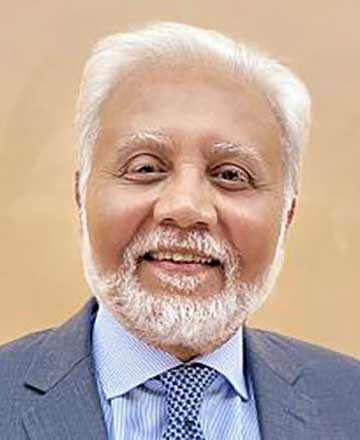
Dr. Amit Roy
Chair, Sasakawa Africa Association (SAA)
Dr. Amit Roy, Chair of SAA, is the former president and chief executive officer of the International Fertilizer Development Center (IFDC), has more than 40 years of experience in international agricultural development in more than 100 countries. Under Dr. Roy’s leadership, IFDC’s programs broadened to help create sustainable agricultural productivity around the world. From bringing farmers from poverty to prosperity to ensuring global food and nutrition security to environmental protection and economic growth, IFDC has helped farmers thrive. Among other honors, Dr. Roy was instrumental in organizing the Africa Fertilizer Summit in Abuja, Nigeria, in June 2006; in 2008 he spoke before the Hunger Caucus of the U.S. House of Representatives and in 2012 was appointed to the Steering Committee of the Global Nutrient Management Project of the United Nations Environment Program.

Dr. Steven Were Omamo
Director, Director of Development Strategies and Governance (DSG), International Food Policy Research Institute (IFPRI)
Steven Were Omamo is Director of the Development Strategies and Governance Unit, based in Nairobi, Kenya. He also serves as Director for Africa. Were worked most recently for New Growth International, where he served as Chief Executive Officer (CEO) and President. Previously, he held several leadership positions with the UN World Food Programme (WFP), including as Country Director in Ethiopia, and as Deputy Director and Food Systems Coordinator of the WFP Policy and Programme Division. He has also served as Director of Global Engagement and Research with the International Fund for Agricultural Development (IFAD), Director of Policy and Advocacy with the Alliance for a Green Revolution in Africa (AGRA), and has held positions with the International Service for National Agricultural Research (ISNAR), International Livestock Research Institute (ILRI), Kenya Agricultural Research Institute (KARI), Association for Strengthening Agricultural Research in Eastern and Central Africa (ASARECA), and Egerton University, Kenya. Earlier in his career, Were worked at IFPRI as a Research and then Senior Research Fellow. He is an Adjunct Professor of Agricultural Economics at Virginia Tech University and holds PhD and MA degrees from Stanford University, an MS from the University of Connecticut, and a BS from California State University, Fresno.
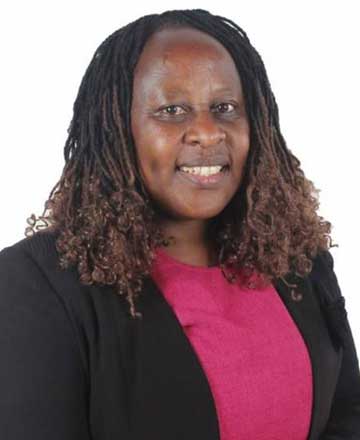
Dr. Lilian Lihasi
Executive Director, The African Forum for Agricultural Advisory Services (AFAAS)
Dr. Lilian Lihasi, an expert in Agricultural Extension and Rural Development, is the Executive Director of AFAAS. She holds a PhD in Agricultural and Rural Innovations, an MSc in Agricultural Extension, and a Bachelor's in Agriculture and Home Economics from Egerton University, Kenya. She has led impactful initiatives in agricultural extension, policy, and rural development, demonstrating strong leadership as Extension Specialist and Director of Extension and Programmes at AFAAS. Her career reflects a deep commitment to last-mile delivery, partnership development, resource mobilization, and policy advancement. With a strategic and operational grasp of agricultural systems, she is known for driving transformative changes across research and development landscapes.
Keynote Address
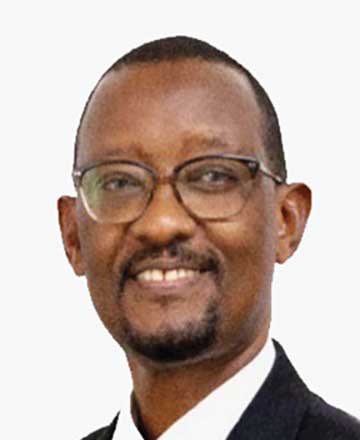
Dr. Canisius Kanangire
Executive Director, African Agricultural Technology Foundation (AATF)
Dr. Canisius Kanangire is the Executive Director of the African Agricultural Technology Foundation (AATF). A seasoned technocrat and academic, he brings extensive leadership experience in managing international institutions and building strategic partnerships at regional and global levels.
Prior to AATF, he served as Executive Secretary of the African Ministers’ Council on Water (AMCOW) and held leadership roles at the Lake Victoria Basin Commission and the Nile Basin Initiative. Earlier in his career, he was a lecturer and Dean of the Faculty of Agriculture at the University of Rwanda and served on the board of the Rwandan Institute for Agricultural Research (ISAR). Dr. Kanangire holds a PhD in Aquatic Sciences and an MSc in Freshwater Ecology from the University of Namur, Belgium.
Special Report
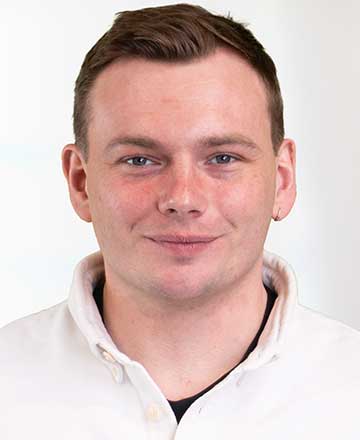
Dr. Eliot Jones-Garcia
Senior Research Analyst, IFPRI
Eliot Jones-Garcia is a Senior Research Analyst with the Natural Resources and Resilience Unit based in Washington, DC. His research focuses on human-AI interaction, user-centered design, and the ethical and responsible development of AI.
At IFPRI, he explores the conceptual and methodological advancements of AI, the skills and governance structures needed to responsibly integrate AI into agricultural research, and the socio-technical barriers that shape its effectiveness in extension and advisory services.
Eliot is finalizing a PhD on the digitalization of agricultural advisory services at Wageningen University & Research. He holds a master’s in Rural Development and Innovation from Wageningen University and a bachelor’s in International Agriculture from the University of Greenwich.
Status and Future of Extension in Africa
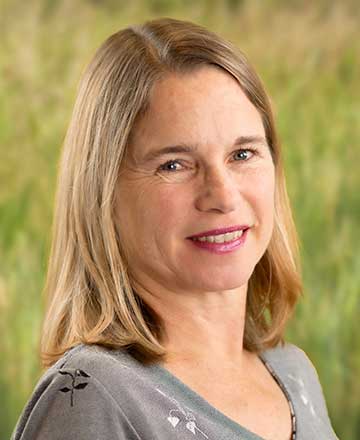
Dr. Kristin Davis
Senior Research Fellow, IFPRI
Dr. Kristin Davis serves as a senior research fellow at the International Food Policy Research Institute (IFPRI), leading key initiatives such as the socioeconomics, capacity, and policy work package of the Nature-positive Solutions under One CGIAR. Her role in promoting gender equality and youth inclusion in One CGIAR's Eastern and Southern Africa initiative reflects her commitment to inclusive agricultural development. Dr. Davis has also provided valuable policy guidance to research teams in Asia and Africa, contributing to the Feed the Future Innovation Lab for Food Security Policy Research, Capacity, & Influence (PRCI).
Her tenure at IFPRI has been marked by significant achievements, including leading a major agricultural extension project and foundational work in setting up the Global Forum for Rural Advisory Services (GFRAS) as executive secretary. These roles highlight Dr. Davis's dedication to enhancing agricultural development, policy research, and innovation. Appointed as a member of the Board of Directors of SAA in 2024.
Multidimensional extension: experience and lessons
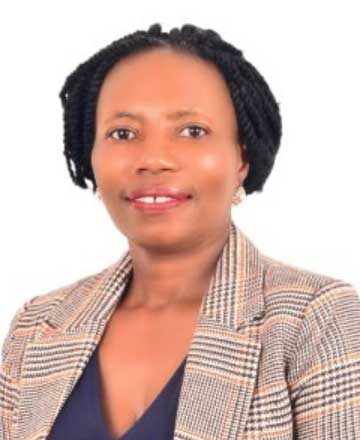
Dr. Rosemirta Birungi
Africa-Wide Agricultural Extension and Advisory Services (AEAS), Technical Lead, AFAAS
Dr. Rosemirta Birungi is specialist in Agricultural Value Chain Extension and Advisory, and currently she is the Africa-wide Technical Lead on Agriculture Extension and Advisory Services with AFAAS. She holds a PhD with Research on Agricultural value chains, Master in Development Management, Bachelor of Management Science, Diploma in Business Administration, and about 40 short courses in value chain aspects of Export Marketing, Climate Change Transformative Actions, and project management, She is passionate about transforming food systems through innovation and farmer empowerment. She facilitates organizations to design impactful projects, secure climate and development funding, and scale solutions that improve productivity and market access. Her work bridges agricultural extension strategy, sustainability, and inclusive growth across Africa.

Mr. Robert Anyang
Country Director, SAA-Uganda
Robert Anyang joined SAA in April 2024 as Country Director of SAA Uganda. Robert earned a master’s degree in Agronomy from Kenyatta University and a Postgraduate Diploma in Crop Production and Horticulture.
He has 29 years of experience in the agriculture industry and has demonstrated expertise in various fields, including augmenting value chains, facilitating market access for smallholder farmers, expanding input networks, private-sector seed production, and linking farmers and farmer organizations to agricultural finance and mechanization across Africa. Prior to joining SAA, he was the CEO of USAID Feed the Future Uganda Strategic Investments Activity. Anyang has also worked with various international research organizations such as the International Institute of Tropical Agriculture and the Africa Rice Center in Ibadan.
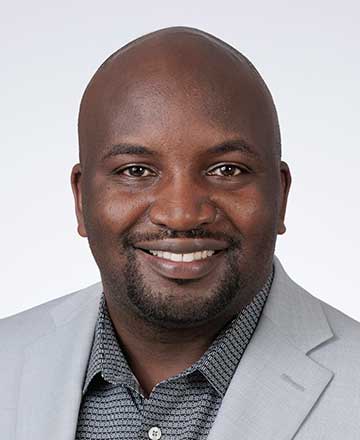
Dr. Tawanda Hove
Senior Program Officer, Digital Agronomy, Gates Foundation
Dr. Tawanda Mthintwa Hove is a Senior Program Officer at the Gates Foundation, leading digital agriculture investments across Sub-Saharan Africa. With over a decade of experience, he is advancing the use of Artificial Intelligence to deliver site-specific agronomic and livestock advisory services that respond to real-time farmer needs. His work focuses on closing yield gaps and addressing market failures through catalytic, data-driven solutions. Dr. Hove collaborates with governments, private sector actors, and multilateral institutions to scale inclusive, sustainable agricultural systems. He brings deep expertise in soil health and the fertilizer industry, grounding his strategic leadership in both technical knowledge and field-level impact. His passion lies in transforming small-holder farming into a viable, resilient engine for rural development and food security.
Panel discussion

Dr. Mel Oluoch
Strategic Partnership Director, SAA
Dr. Mel Oluoch, Strategic Partnership Director of the SAA, joined SAA since 2018 as the Regional Director and is based in Addis Ababa, Ethiopia. He has a PhD in Horticulture from Virginia Polytechnic Institute and State University (Virginia Tech, USA) an MSc in Horticulture from Central Mindanao University (Philippines), and a BSc Degree in Agriculture from the University of Eastern Africa (Kenya). He has previously held R&D and leadership capacities at the World Vegetable Center, the International Institute of Tropical Agriculture (IITA), HarvestPlus, International Center for Tropical Agriculture (CIAT), and Wageningen Plant Research, The Netherlands. His work has focused on multidisciplinary R&D disciplines that integrates agriculture and nutrition through the development and dissemination of Agriculture technologies and best practices such as integrated crop management technologies, climate-smart agriculture practices, resilient crop varieties and nutrition sensitive technologies that impacts rural and urban communities in Africa. Currently he coordinates SAAs strategic partnerships to enhance the design and program delivery of practical and innovative agricultural extension and advisory service and capacity building systems in Africa. He also leads the resource mobilization strategy for SAA.

Dr. Tawanda Hove
Senior Program Officer, Digital Agronomy, Gates Foundation
Dr. Tawanda Mthintwa Hove is a Senior Program Officer at the Gates Foundation, leading digital agriculture investments across Sub-Saharan Africa. With over a decade of experience, he is advancing the use of Artificial Intelligence to deliver site-specific agronomic and livestock advisory services that respond to real-time farmer needs. His work focuses on closing yield gaps and addressing market failures through catalytic, data-driven solutions. Dr. Hove collaborates with governments, private sector actors, and multilateral institutions to scale inclusive, sustainable agricultural systems. He brings deep expertise in soil health and the fertilizer industry, grounding his strategic leadership in both technical knowledge and field-level impact. His passion lies in transforming small-holder farming into a viable, resilient engine for rural development and food security.
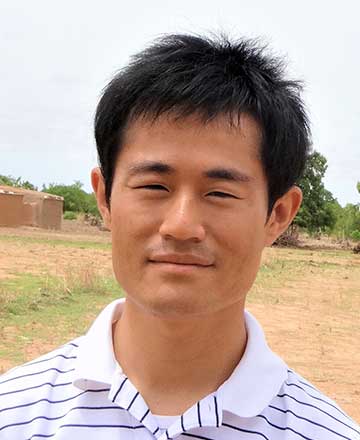
Dr. Junji Koide
Senior Researcher, Japan International Research Center for Agricultural Sciences (JIRCAS)
Dr. Junji Koide is a Senior Researcher in the Social Sciences Division at the Japan International Research Center for Agricultural Sciences (JIRCAS). He is responsible for the socioeconomic evaluation of technologies developed under JIRCAS’s agricultural research projects in Africa. He also collaborates with JICA and SAA to promote technology dissemination and provides training for local agricultural extension officers.
Dr. Koide has developed a decision-support model that identifies optimal cropping systems and other solutions to enhance food security and increase incomes for smallholder farmers. The model has been applied in several African countries, with Mozambique—an early pilot site—showing significant income gains among participating farmers.
He has also engaged in interdisciplinary research with experts in agronomy, hydrology, soil science, and livestock; participatory technology trials with smallholders; and the development of ICT-based farm record systems. Data obtained from these efforts feed into the model, enabling precise identification of suitable technologies and crop options, as well as the design of optimal adoption plans for farmers.
Recently, he has been developing a cross-platform application to enhance the accessibility and usability of the model in the field.
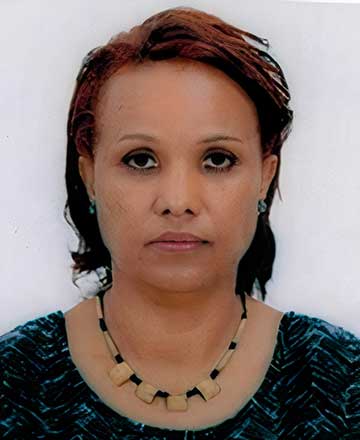
Ms. Yenenesh Egu Bezabih
Lead Executive Officer, Agriculture and Horticulture Extension, Ministry of Agriculture Ethiopia
Mrs. Yenenesh is currently serving as the Executive Lead for Agriculture and Horticulture Extension at the Ministry of Agriculture, Ethiopia. She is a rural development and agricultural extension professional with over 15 years of experience, starting her career as a grassroots development agent and most recently serving as Director of Agricultural Extension at the national level.
She has played a key role in formulating and implementing Ethiopia’s pluralistic extension strategy, and in coordinating extension activities through partnerships with donors, international NGOs, private service providers, and public institutions. Her work has also contributed to strengthening research-extension-farmer linkages. Additionally, Yenenesh is actively involved in promoting digital extension and advisory services.
Concluding remark- A way forward

Mr. Shuichi Suzuki
President, SAA
Shuichi Suzuki was appointed as President of the SAA in March, 2025. He brings to SAA extensive international leadership experience in sectors that shape global development, trade, and sustainability. He gained extensive international experience in the steel pipe trade through assignments at Sumitomo Corporation’s overseas offices in Baghdad and Singapore. He later held key leadership roles in the European Steel Pipe Division of Sumitomo Corporation Europe Group in Paris and London.
In 2011, he was appointed as a Corporate Officer of Sumitomo Corporation, and in 2014, he became an Executive Officer, leading the organization as Head of the Steel Pipe Division. In 2017, he assumed the role of General Manager of the Energy Division, driving global business expansion.
After retiring from Sumitomo Corporation in 2019, he served as an Advisor and Counselor to the Mineral Resources & Chemicals Business Unit, while also assuming the role of Chairman of GYXIS CORPORATION. Throughout his career, Mr. Suzuki has contributed to advancing sustainable growth, global collaboration, and responsible resource management—priorities that resonate with SAA’s mission to transform African agriculture.
Contact
Sasakawa Africa Association
Mail: info@saa-safe.org
